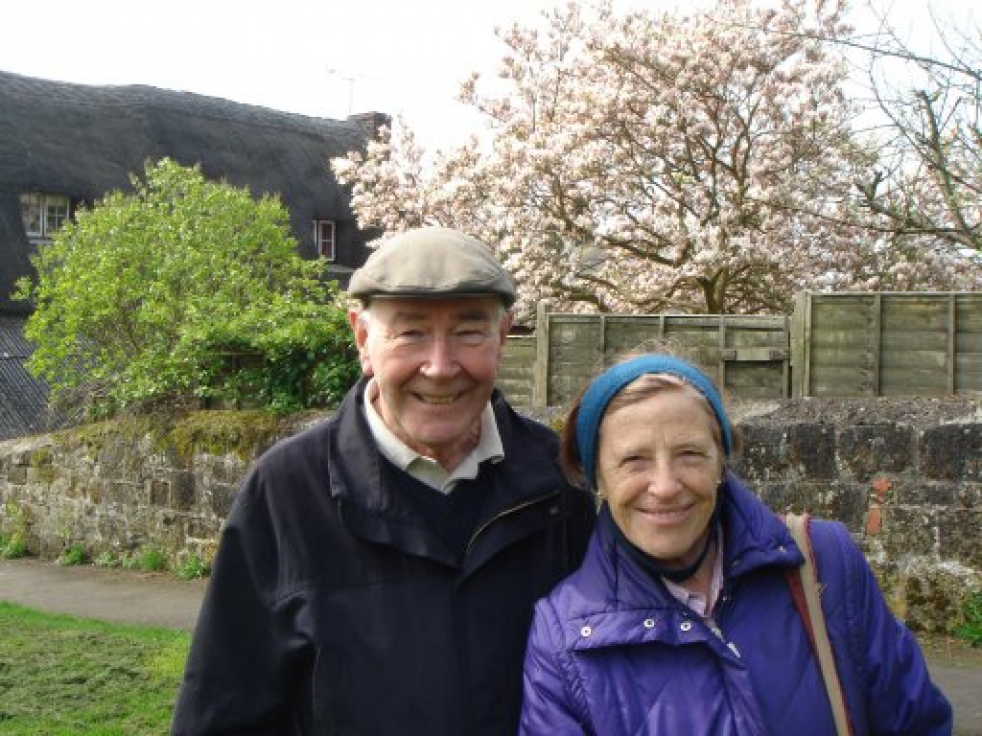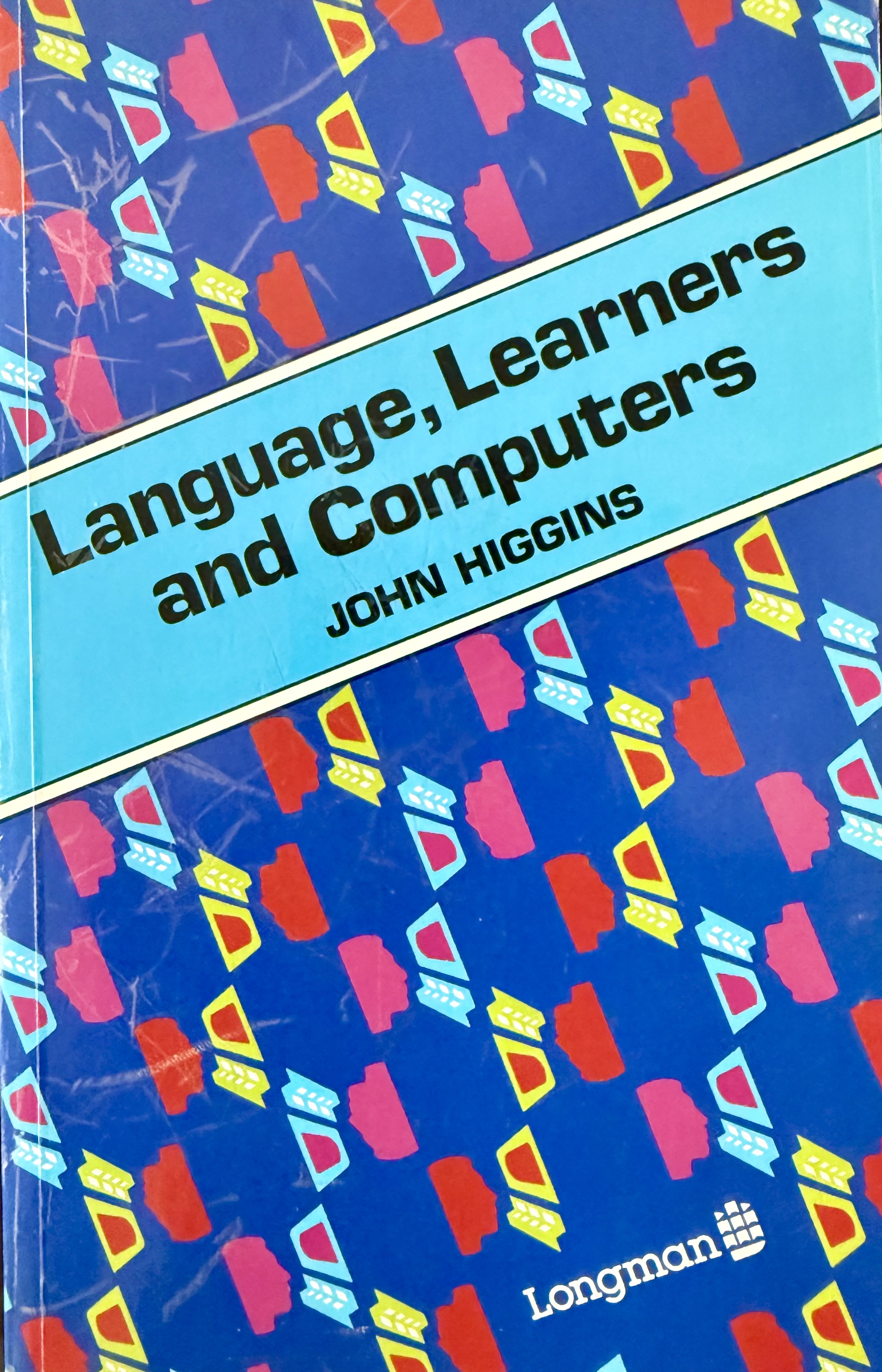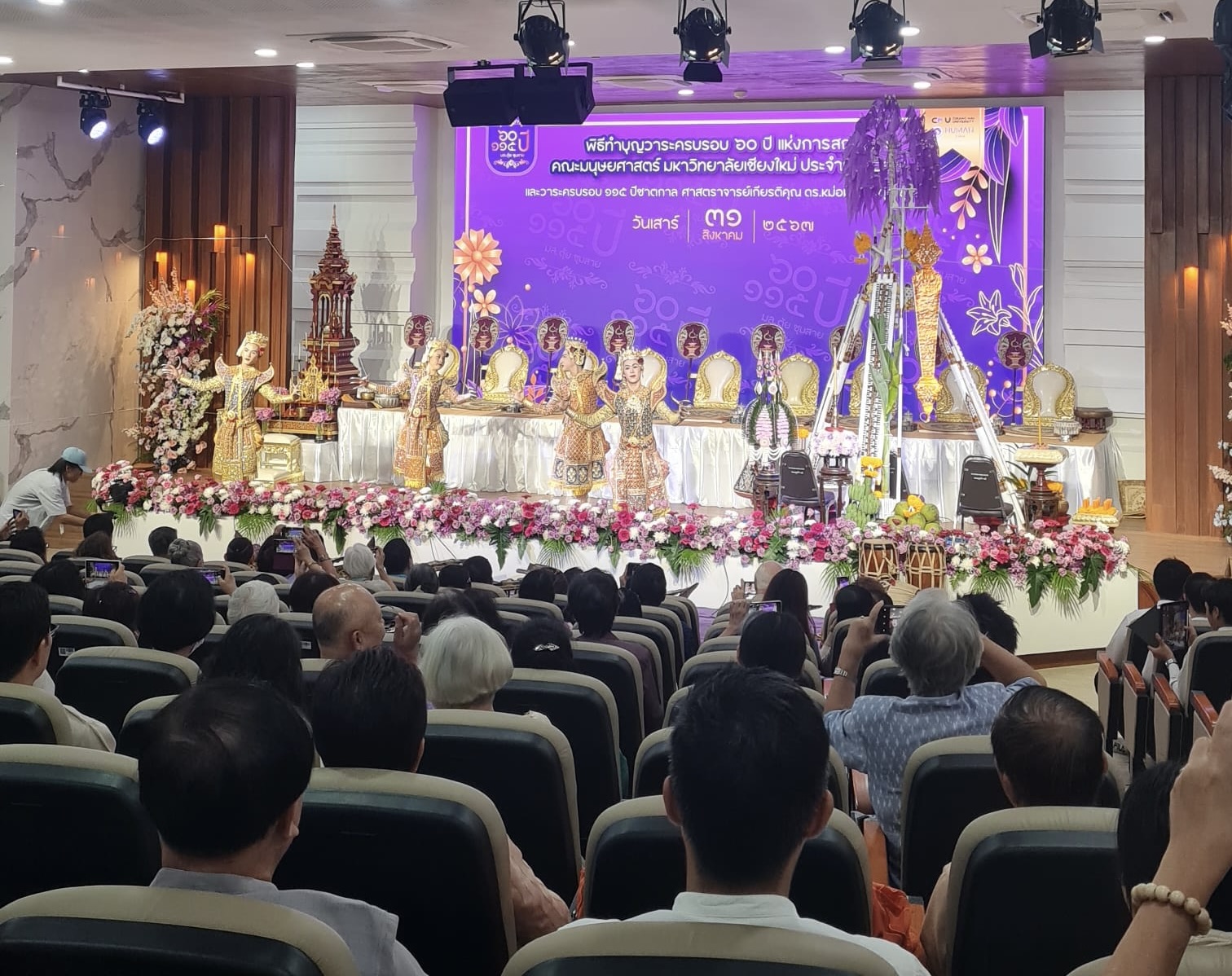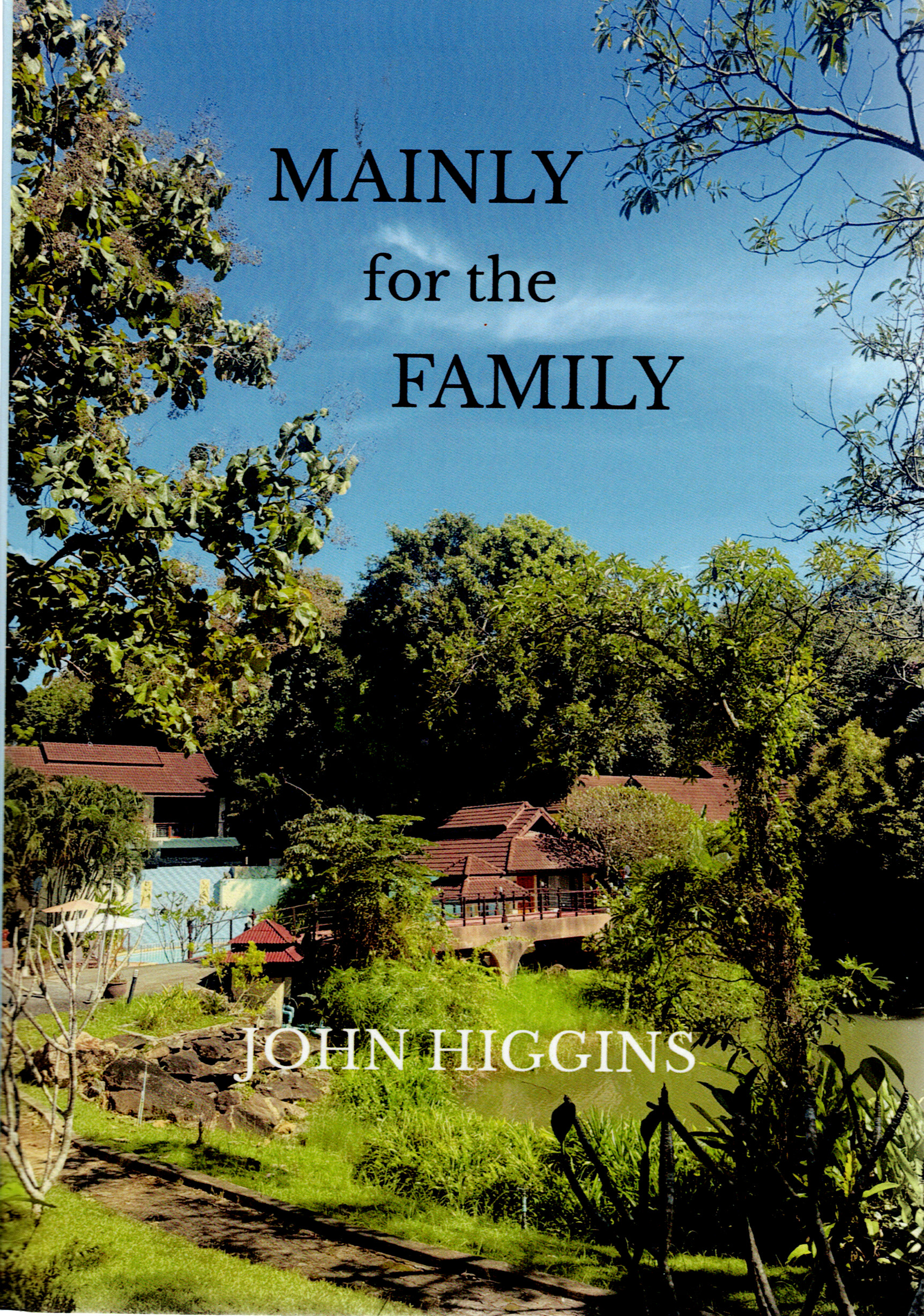



| Pictures of Chiang Mai, 1964-1966 |
Victor Canning, novelist (1911-1986) |
David Cargill (Fiji missionary, 1809-1843) |
| Schubert Institute | A voyage to Australia, 1852 |
Wordscapes: Words as art |
This was the home page of John and Muriel Higgins. Sadly Muriel died on 18 November 2020, but her work lives on and she is remembered fondly by family, friends, colleagues and students.
Between 1963 and 1986 we lived and worked in Thailand, Norway, the USA, Tanzania, Turkey, Egypt and Yugoslavia, teaching EFL. John joined the British Council in 1971. Muriel published several textbooks with Longman and a book on patchwork with Batsford. In 1980 we became involved in CALL (Computer-Assisted Language Learning) and put together a number of innovative pieces of software, including the first versions of a program later released as STORYBOARD, ECLIPSE, RHUBARB, and (in an uncredited version) DEVELOPING TRAY. See the demo version of ECLIPSE above if you want to try your hand, along with another exercise, SEQUITUR. John wrote or co-wrote (with Tim Johns) three books on CALL and numerous articles.
In 1986 John left the British Council and taught in the School of Education of Bristol University, and from September 1993 to August 2000 taught the M Sc in CALL and TESOL at CELT (the Centre for English Language Teaching) in the University of Stirling. In 2005 we moved from Scotland to Shaftesbury in Dorset. Then in August 2021 John moved to Chiang Mai, Thailand, where he now lives. He recently took part in a celebration of Chiang Mai University's sixtieth anniversary, where he and Muriel had been on the staff from the first day.
 |
 |
 |
And the family remembers our daughter Ana, born in Chiang Mai, 20 March 1965, died in London, 20 July 1997.
Meanwhile John enjoys the blessing of regular visits from our second daughter, Imogen, born in Oslo, 5 March 1967, and occasional visits from grandchildren, Clementine, Laetitia and Louis.
 Memoirs, 230 pp. available from Lulu.com £10 plus postage. |
Links to some of John's articles—on language: |
|
Magister and Pedagogue… A good deal of the effort devoted to intelligent tutoring systems seems to be based on what I call the “magisterial fallacy”, the belief that nothing is learned unless it is explicitly taught. … On the contrary, learning requires only a stimulating environment which provides feedback, one in which the laws of cause and effect work normally. |
Reading and risk-taking… Developing better reading skills is, as Bright and McGregor pointed out, often a matter of convincing a reader that more adventurous reading is also likely to be more effective reading. |
What happens in ECLIPSE? (1991)… Teaching is a sequential and finite process. Acquisition is an unpredictable, non-linear, chaotic process in which prodigious achievements may be made or little progress perceived without the circumstances telling us why. … Benoit Mandelbrot once asked “How long is the coastline of Britain?” One could legitimately ask a similar question: “How big is the English language?” and spend a similarly infinite time not reaching the definitive answer. |
What else happens in ECLIPSE? (2000)… Knowing the limited memory span of my charges, we started from scratch again; it was stunning to find that many of the pupils could recite the parts of the passage we had uncovered two days before almost word-for-word and that they had been considering some of the more difficult gaps since the previous lesson. |
Grammarland… The problem, particularly for an adult, about going to France to learn French is that the natives talk too fast and use too much difficult language. Perhaps GRAMMARLAND can be regarded as a port of call, a protected environment where acquisition is nourished and unlimited stopovers are permitted. |
The Grammarland parser… In general, there are only three things we ever want computers to do. We want them to store data. We want them to retrieve data. We want them to process data (and perhaps display the results graphically). These happen to correspond neatly to the three sentence archetypes of STATEMENT, QUESTION and COMMAND. |
Artificial Unintelligence…One gets a little closer to the domain of artificial intelligence if one designs programs in which the communication is more genuinely two-way, programs in which the learner has to get messages across to the machine as well as receive messages from it. |
Another look at
|
Don't ask the admiral ...… I must admit, however, that I have my doubts about the efficiency of the self-repair mechanism. If it is in place, why has it not widened the gap between 13 and 30? Somehow we continue to put up with endless missed appointments and missed trains because X said 10:13 and Y heard 10:30. |
I speak analogue; you hear digital… In effect what we are doing here is to have the candidate give the assessor a listening test. We are certainly making the assessor behave more like a listener dealing digitally with the question "What is the candidate trying to tell me?" rather than like a judge dealing in an analogue way with the question "How well can the candidate make that sound?" |
Power to the pupils… “Who were your teachers?” I asked him, thinking he might have had a native speaker for his school class. “My teachers?” he said, “my teachers were Richard Burton, Laurence Olivier and Gregory Peck.” Pretentious little git, you may be thinking, but there was not much wrong with his English. |
Fuel for learning… if I can without strain find 555 paraphrases of an 8-word sentence, then several thousand million paraphrases of a 50- to 60-word paragraph is reasonable. … Why has Mother Language showered us with so many ways of expressing meanings? |
Receptive drill… The puzzle format demands that the learner think about meaning while being exposed to a set of sentences displaying the same or similar sentence patterns; hence the description “receptive drill.” |
The Drachenland Fable... people were discussing the integration of computer activities into classwork. Looking round the room, I wondered why everybody was looking so glum. Would they still be so glum if the topic were, say, singing? |
More trial? Less error?… A student may give a wrong answer and then realise it is wrong. The answer was just a careless slip and hardly needs any correction. … A student may give a wrong answer believing it to be right. In that case one can well label the answer an error, something which sends a warning signal to the teacher that something must be done … A student may also give a wrong answer in order to find out if it is right. You can hardly call that an error; it is an experiment, an attempt to collect the data which will lead to the internalisation of an appropriate rule. |
Enthusiasts… Learning a language is learning how to mean, and there is now an abundance of written and spoken meaningful language out there on the Internet and lots of things to do with it. Lucky learners! |
—and on favourite writers: |
|
The Birdcage books of Victor Canning(Contribution to Mystery People online journal, September 2017)… The three best of the Birdcage series, Firecrest, The Rainbird Pattern and Birdcage, constitute some of the best storytelling of the century. |
John Buchan and Victor Canning(from The John Buchan Journal, Issue 43, Spring 2011.)… It was this middle period work which drew the label “Buchanesque” from many critics. The Golden Salamander (1949) was described as “pure Buchan and very exciting” by the Times Literary Supplement. A Forest of Eyes (1950) was “an unusually well-written adventure story … Iron Curtain Buchan” |
Andrew Garve and Soviet Russia(Entry in The Literary Encyclopedia)… In his thrillers he has nothing good to say about communism and the Soviet system. However, given the leftist and on the whole rather charming idealism of his earliest work, I would still be surprised if he ever cast a vote for the Tories. |
The plots of Andrew Garve(Contribution to Mystery People online journal, February 2018)… When you read The Ashes of Loda, his 1965 thriller about a British journalist escaping from Moscow across Ukraine in January, you will surely want to put on an extra sweater, if not an overcoat, scarf and gloves, so convincing is the description of a Russian winter. |
Robert van Gulik
|
Harry Kemelman and The Rabbi… In the case of Kemelman’s Rabbi Small and Judaism, the relevant background skill for the detective is rabbinical training in Talmudic argument, the close examination of a text or a story and the discussion of its application in other contexts. |
Peter O'Donnell & Modesty Blaise(Entry in The Literary Encyclopedia)… One gets the sense that O’Donnell is writing for the kind of reader who does not sit down to read a book at a sitting but one who reads for a few minutes before going to sleep or on a commuter train. It is something he may have learned from scripting comic strips, and it is a valuable talent in a novelist. |
J. M. ScottExtended version of entry in Wikipedia.On Sea-Wyf and Biscuit … Was this, as Scott maintained, a true story which he learned at first hand fictionalised just enough for the main actors to be unidentifiable, or a plausible made-up story to explain the documented small ads, or had Scott created the whole story, inserting the ads himself in order to supply a hook for the novel? Against the third account is the four year delay. If Scott had invented the story, why wait four years to publish? |
... odds and ends: |
|
|
“Consider. When the colours red and blue are mixed, a third and
quite different colour is formed—violet. Might not the same thing
happen with ideas?” |
“Knowledge is like water. You can map out boundaries, but lines
on paper don’t hinder currents and tides,” |
|
Homines dum docent discunt. | |